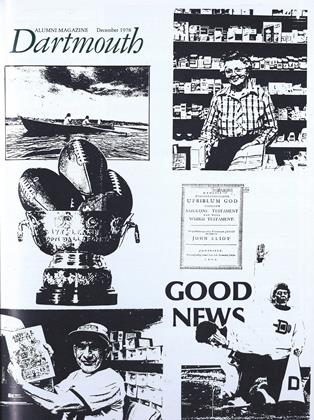The rapid social change which has occurred in this country since the early sixties has rekindled much thought and interest in nonstandard mechanisms for altering social structures. These books are timely and helpful reminders of the historical antecedents, as well as the contemporary applications, of civil disobedience and the nonviolent movement.
Civil Disobedience In America is a collection of essays, letters, sermons, and speeches published from 1657 to 1973. Included are 46 documents ranging in authorship from Jonathan Mayhew through Harriet Beecher Stowe to King, Carmichael, and Berrigan.
With brief introductions Weber thoughtfully analyzes and attempts to place in perspective each of the documents in the collection. He also undertakes, rather successfully, to distinguish between the subtleties of the various positions taken and the extent to which earlier writers have influenced their successors.
Civil disobedience is a stated willingness to defy a law or a group of laws thought to be unjust or oppressive. The writings, chronologically arranged, are grouped around the early religious persecution of Quakers and Baptists, slavery and the Fugitive Slave Law of 1850, discrimination against women with respect to the right to vote, conscientious resistance to World Wars I and II and Vietnam, and the contemporary civil rights movement.
One is struck by the continuing thread which runs through all of the writings, from the earliest to the most contemporary: the rationale for civil disobedience is always based on appeal to a "higher law" - the Bible, transcendentalist natural law, or the human conscience. As always, the old dilemma is faced - who defines the higher law in a given situation.
Some of the extracts have an immediacy which is as electric today as it must have been when they were first published. Susan B. Anthony's "Statement to the Court" in 1863, on the occasion of her trial and sentencing for unlawful voting, is illustrative. Some of her arguments are as applicable today to the debate over the Equal Rights Amendment as they were over a hundred years ago to the question of women's right to participate in the electoral process.
On the other hand, civil disobedience frequently does achieve its purpose. The several pieces by the abolitionists and by those who opposed fugitive slave rendition are primarily of historical interest and have no immediate application to contemporary concerns about the treatment of minorities.
The Struggle For Humanity, subtitled "Agents of Nonviolent Change in a Violent World," is a collection of seven biographies of contemporary practitioners of the art of nonviolent change. All were born in this century (five since 1924), and they represent a global selection. Although civil disobedience and nonviolence necessarily overlap (the suffragettes arrested for picketing in front of the White, House were exercising a lawful Constitutional right), practitioners of nonviolence seek, for the most part, to operate within the law, while practitioners of civil disobedience act in defiance of the law.
The book by Young and Hope is a collection, with little more, of the biographies of individuals whom they have met on their travels throughout the world. Each piece is instructive about the individuals concerned, ranging from Gandhi's disciple Shantidas to representatives of Italy, Brazil, the United States (Ceasar Chavez), South Vietnam, and Zambia. In each case, the person sought to bring about massive social change in his or her country. These are men and women of diverse backgrounds and origins but each with the same overriding commitment.
It is difficult to generalize about the success of nonviolence as a technique, as exemplified by the individuals portrayed. Certainly each had victories. Viewed on a world scale, it is less easy to talk about the progress they made.
The Struggle For Humanity may introduce some readers (I am one) to unfamiliar personalities. In that sense, too, it is refreshing and enlightening.
CIVIL DISOBEDIENCEIN AMERICAEdited by David Weber '65Cornell, 1978. 318 pp. $17.50
THE STRUGGLE FOR HUMANITYBy James Young '40and Marjorie HopeOrbis, 1977. 305 pp. $8.95
Charles Duncan, a Washington attorney andformer dean of the Howard University lawschool, has a long-time interest in civil rights.
 View Full Issue
View Full Issue
More From This Issue
-
 Feature
FeatureCrime and Punishment
December 1978 By Tim Taylor -
 Feature
Feature'Raucous behavior of a different sort'
December 1978 By Mary Ross -
 Feature
FeatureParadise Lost or Paradise Regained?
December 1978 -
 Feature
FeatureGOOD NEWS
December 1978 -
 Article
Article'Most Improved Professor'
December 1978 By NARDI REEDER CAMPION -
 Article
ArticleStraight Shooter
December 1978 By D.M.N.
Books
-
 Books
Books"A Discussion of the Leading Producers and Distributors of Natural Gas"
APRIL 1930 -
 Books
BooksMR. MADISON'S WAR
January 1937 By Allen R. Foley '20 -
 Books
BooksTHE PEARL OF HER SEX,
November 1947 By Bill Cunning, KENNETH A. ROBINSON -
 Books
BooksUnmet Hope
MAY 1978 By DAVID DAWLEY '63 -
 Books
BooksAN ASTRONOMER'S LIFE
December 1933 By L. B. R. -
 Books
BooksA Good Yarn
JANUARY/FEBRUARY 1985 By Mary B.Ross

